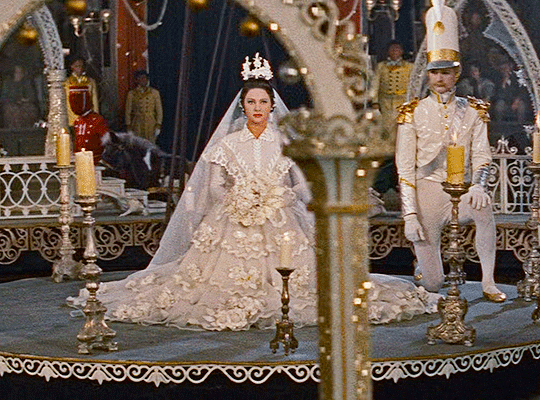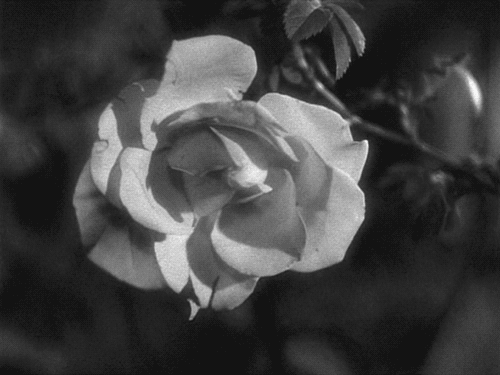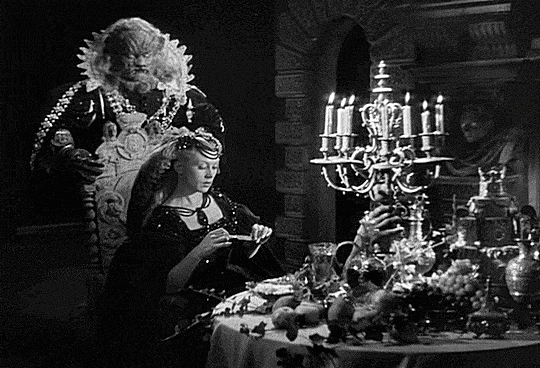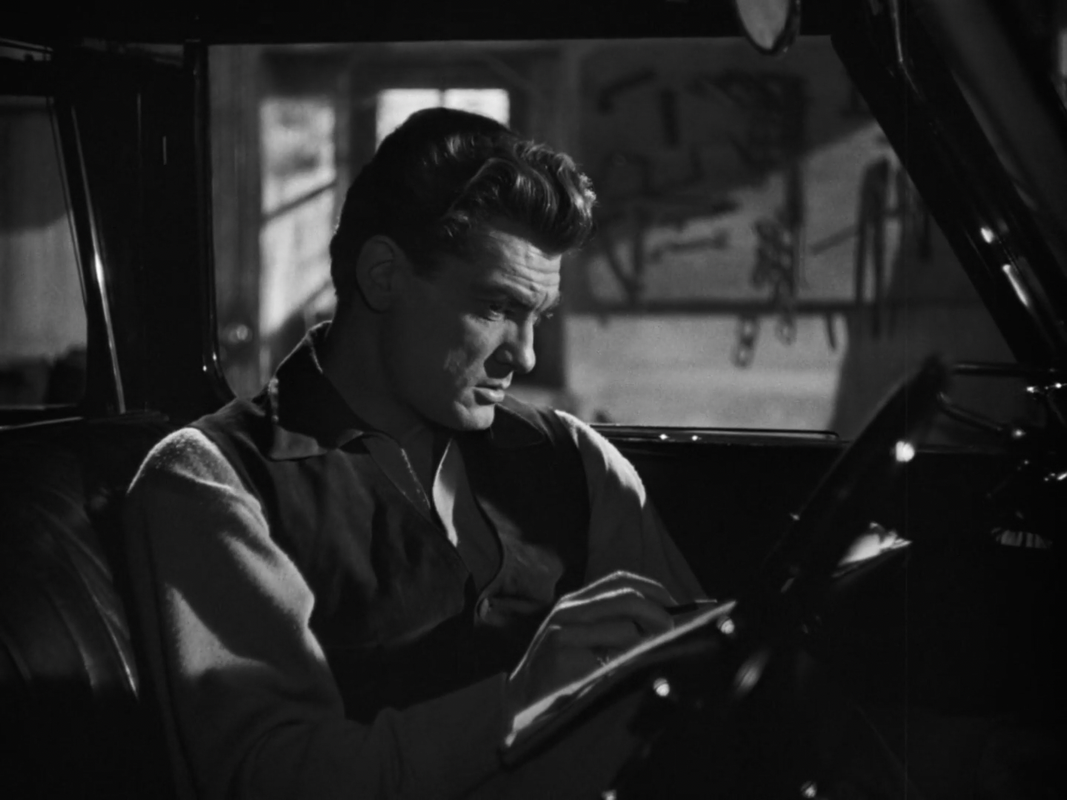Corridor of Mirrors (Terence Young, 1948)
Sep
3

Mifanwy (Edana Romney) anachronistically smoking a cigarette. DP: André Thomas.
GeorgesAuric
“The painter takes his time. He doesn't like her dress. He doesn't like her gloves. One day he asks her if she dares pose for him – all in pink. She dares! And the king, enraptured by her pose, offers her a palace!” Lola Montès (Max Ophüls, 1955)
Aug
14
Bavaria

The crowned royal mistress on display in glorious Eastmancolor (via). DP: Christian Matras.
Celebrating Oktoberfest [in September/October] and the Bavarian royals [rip]: a royal character or family*
– circus master
Maria Dolores Porriz y Montez, Countess von Landsfeld, Lola Montès for short, now a circus attraction, once the mistress to Ludwig I, King of Bavaria. While her fellow circus performers play Lola's former lovers, the ringmaster tells her story.
* the Bales 2025 Film Challenge for August is not date-related but lists, for the most part, the colours of the rainbow.
– Can such miracles really happen?
– You and I are living proof.La Belle et la Bête [Beauty and the Beast] (Jean Cocteau + René Clément, 1946)
Nov
28
Giving Tuesday

The most beautiful flower, a rose, in La Bête's enchanted garden. DP: Henri Alekan.
Someone is given something special for Giving Tuesday (USA)
Just before leaving home for a business trip, a father asks his three daughters what he can bring them as a return gift. The eldest two ask for silly, extravagant things. A monkey! A parrot! The youngest simply wishes the most beautiful flower which the father finds in an enchanted garden, guarded by a terrible beast. And will pay for with his life unless he gives his youngest away to the beast, to die in his place.
#Cocteau and Clément's La Belle et la Bête is of course based on Gabrielle-Suzanne Barbot de Villeneuve's fairy-tale, which on its turn was based on the classic myth of Cupid and Psyche.
– Does he crawl on four legs? What does he eat and drink? – I've given him water to drink on occasion. He would never eat me.La Belle et la Bête [Beauty and the Beast] (Jean Cocteau + René Clément, 1946)
Aug
15
a cornucopia of wonder

La Belle (Josette Day) at a fancy table stacked with good foods and nice wines. She's cleaning her fingernails with the silverware while a chagrined Bête (Jean Marais) looks on. As magical as the story are the production and set design by Christian Bérard, Lucien Carré, and René Moulaert. They breathed a soul into almost everything, including the candelabras. DP: Henri Alekan.
“Sleeping or dreaming, the dreamer must accept his dreams.”Orphée [Orpheus] (Jean Cocteau, 1950)
Apr
27
Morse Code Day

Orphée (Jean Marais) in the black car, hearing poetry in Morse. DP: Nicolas Hayer.
#Cocteau's Orpheus – here the mythological poet and musician is personified by Jean Marais – accompanies a fallen young poet transported to the Underworld by car. The car radio plays fragments of poetry, interrupted by #MorseCode. When back in this world, #Orphée obsesses over the lines of radical poetry he heard and returns to the car's radio to retrieve them.
– The Princess
Morse code and other industrial sounds serve as a soundscape for Cocteau's characters. They swerve in and out of it, sometimes fully aware of them (#Orpheus himself is attuned to the #poetry to be found in emergency radio broadcasts), by times passing through like a mirage.
“If she is innocent! Why do you never wonder if Parris be innocent, or Abigail? Is the accuser always holy now? Were they born this morning as clean as God's fingers? I'll tell you what's walking Salem — vengeance is walking Salem. We are what we always were in Salem, but now the little crazy children are jangling the keys of the kingdom, and common vengeance writes the law!”Les sorcières de Salem [The Witches of Salem / The Crucible] (Raymond Rouleau, 1957)
Mar
7
National Town Meeting Day

The townspeople meet in the barn to judge the accused. DP: Claude Renoir.
Raymond Rouleau's Les sorcières de Salem – with a screenplay by Marxist philosopher Jean-Paul #Sartre – is a very early film adaptation of Arthur Miller's 1953 #TheatrePlay The Crucible. An allegory of #McCarthyism, the play is a (partially dramatised) retelling of the #SalemWitchTrials, a dramatic episode in early US-American history. During several court and town meetings, 200 people were falsely accused of meddling with the Devil; 19 of them were eventually executed.
– Arthur Miller, The Crucible (1953)
Miller himself was accused of un-American activities in 1956 and convicted of contempt of Congress for refusing to identify others present at meetings he had attended. Which doesn't mean that #WitchTrials are a thing of the past. As easily one can transplant Puritan religious mass hysteria to 1950s McCarthy anti-socialism, as easy is it applicable to the state of the world today.
